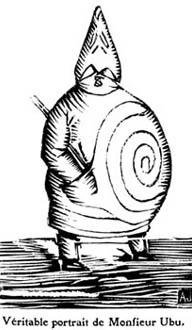Twenty people packed into Book Court's small dusty space on the edge of Fulton Mall in Brooklyn for the continuation of the Day and Night reading series. From the dialog between the readers and audience, it seemed as if the event was just another book club meeting in someone's living room. There were three readers, the first, Daniela Gioseffi, jokingly admitted that she "wasn't prepared to go first" because her name "was last on the flyer". Thumbing through her papers frantically, she talked about her interest and importance of reading work that was translated into a language other than English and convinced the chuckling audience to buy her recently Italian translated work of Blood Autumn. "It's a good way to learn another language", she said. After arranging herself and repeating that she "wasn't quite prepared to go first", she jumped into her first piece from Blood Autumn. It started with the line, "Music is a child of the grass" and continued in a long monotone flow connecting her visions of nature to human emotions. Her long-winded laments for mother-nature and society carried through her entire reading. Her second piece titled, We're made of the dust of stars talked about how we are all created from particles from the Big Bang and afterwards, expressed her strong belief in the theory. The third piece, Carbon Summers read more like a prose piece and addressed global warming. She used lines such as "nuclear winter" and "what seems unprofitable isn't imaginable", and abruptly ended the poem with a "fact" that the "navy engineers under the Bush administration give the polar ice caps 7 years ". It was obvious she was preaching to the choir as the audience nodded in agreement to her point of view. Gioseffi's technique is simple yet the substance of her poetry spreads in all directions ultimately leaning towards a melancholy sentiment.
The second reader, David Evanier, read from his latest book of prose titled The Great Kisser. Although he read only several excerpts from the eight sections in the book one could tell it was about the story of a young Jewish boy growing up in New York. It was packed full of dark, dry, witty, and sarcastic dialog. He started with a section titled My Father, which talked about the generation gap from the son’s point of view and how “his father ruined him” as the father figure yearns for approval from the young boy. Towards the end, the boy, now an older man looks back into his past and dwells on how “fearless” he was and how he has now turned into a “man of sophistication”. Gratitude, the last section of his book addresses race and touches briefly on the character’s view of the Holocaust as he reaches for meaning in writing. Evanier is painfully truthful and shares with us the private trials and tribulations of living in a crazy and often confusing world.
Laurel Blossom read excerpts from her latest book, Degrees of Latitude. This book-length narrative poem takes the reader on her personal voyage from the South to the North Pole while intertwining her personal journey of every day ordinary life as a woman in a very subtle yet brilliant way. Each section is related to her life at home and growing up in a family and eventually distancing herself from them. “We can not belong to the ends of the earth”, she says, as she explains that the section titled The Tropics is about the relationship between her two brothers and the section titled, The Equator is about her father. Eventually, after traveling this distance both physically and mentally, the woman in the poem finds and accepts her “place” on the map. Her work is full of rich vocabulary and she collaborates the idea of her personal struggle as a woman and her physical struggle of making the journey to both poles into a thought provoking story.
